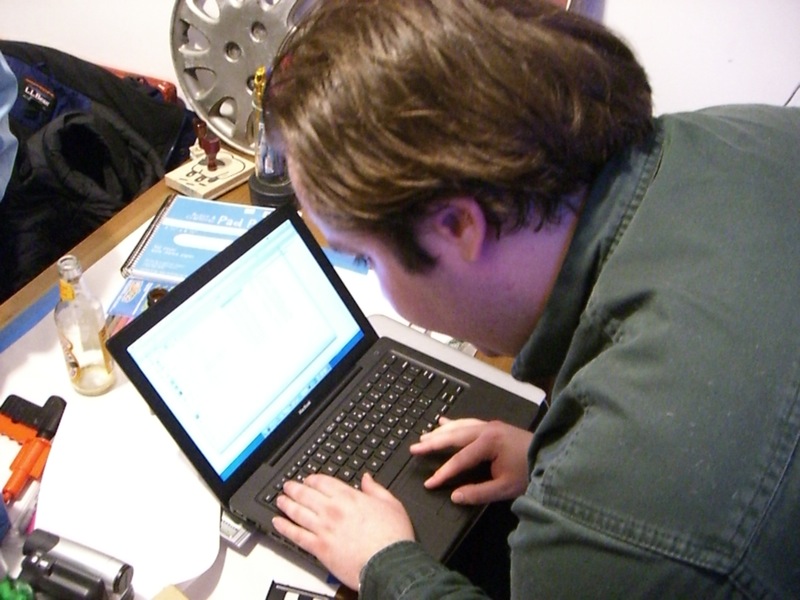– cancer, Alzheimer’s, MS. Driven by global communication through social media, the majority
of nations are at peace, as the problem of oil dependency was alleviated by energy pioneers
that created unlimited fuel from an infinite resource the sun.
But on that morning of hope and global stability, it all went wrong. A disparate doomsday
group from a remote rogue nation, managed to hack into the central control system of the US
nuclear missiles program. Nuclear warheads filled the skies like a plague of hornets, without
method in the madness – without a visible enemy to deter – without a whisper of hope for the
survival of the human race.
An extreme and unrealistic scenario, yet with the advancement and popularity of IT, the
recent cyber squabble – apparently between teenage hackers from Saudi Arabia and Israel in
a battle to affirm who could dash the death-blow in a cyber confrontation – brought the issue
of cyber security again to the foreground of the international security agenda.
“This is not serious stuff,” said Prof. Erez Petrank, a Technion encryption expert interviewed
on the recent cyber punch-out by the National Cyber Security website in the US.
“These hackers are being presented as geniuses. Most of them are simply very patient. They
download a number of tools which they don’t even build themselves, and attack and attack
sites until they find one that isn’t secure.”
“Israel is exposed to cyber-attacks which can paralyze entire life systems on which the country runs.”
PM Netanyahu.
In Israel, it turns out, great minds are contemplating possible Day Zero possibilities. Not
the teenage Saudi ‘nightmare’ – as the ambitious hacker called himself – but the real
NIGHTMARE. And at Technion’s world-leading computer science faculty, plans are underway
to bring expert researchers from across the field into one Cyber Security Research and
Teaching Program at the Faculty of Computer Science.
For experts like Petrank, the kind of “Day Zero” scenario such as sabotage of power plants,
flight control systems, or army control networks are far more disturbing. “Al Qaeda are looking
for more spectacular ways to wage war. They are looking for something more dramatic than
9/11, and that can either be the acquisition of weapons of mass destruction or cyber terrorism
— real cyber terror,” an Israel cyber terror expert told reporters. “Events like these of the past
few weeks can pique their interest in true cyber warfare.”
Real cyber terror involves hitting control systems of airports or other infrastructure, power
plants, transportation systems, hospitals, everything that is controlled by computers. The
damage could be catastrophic – far more than a conventional war. “This could involve the
killing of thousands of people. Imagine someone breaking into Logan airport’s systems, and
instead of hijacking planes, now they are programmed to collide into one another or crash.”
Israel’s enemies are probing the vulnerability of these sophisticated systems. Israeli PM
Benjamin Netanyahu recently warned that “Israel is exposed to cyber-attacks which can
paralyze entire life systems on which the country runs.” To face the constant threat of attacks
by terrorists and hostile countries, it is absolutely vital to Israel’s security and economic well-
being to develop the best, most robust systems and take all measures possible to protect
them. Therefore, Prime Minister Netanyahu has recently announced “the establishment of a
national cybernetic initiative to encourage and develop the field of cybernetics and turn the
State of Israel into a global center of [cybernetics] knowledge, in cooperation with academia,
industry, the security establishment and other public bodies.”
Technion is well known for various contributions in computer security and cryptography, such
as assessing the security of cellular phone networks and exposing their vulnerabilities and
weaknesses.
For example, a Technion team studied the protocols of the ubiquitous GSM phone system
and identified several weaknesses that allowed for eavesdropping on a conversation, taking
over a call, and even impersonating a different phone owner. The researchers also examined
the security of other kinds of applications such as car remote controls, analysis of the strength
of cryptographic standards, and the design of new cryptographic systems.
In addition, Technion researchers working in other areas of computing constantly address
security issues such as cloud computing, where security is a critical enabling technology
without which the entire concept is rendered unusable.
Researchers in a variety of Technion faculties study security issues related to operating
systems (OS), the methodologies by which they defend underlying applications, and
requirements from supporting hardware and programming languages.
Technion graduates have become key players in Israel’s thriving computer security industry.
A good example is the startup, Imperva , which recently went public and works in the area
of data protection. One of its founders was also a founder of Checkpoint, a leading Israeli
company that revolutionized computer security in the early 1990s, making it possible for
enterprises to defend entire networks. Its magnitude of success has paved the way and
inspired many other Israeli companies and Technion graduates. In today’s Israeli high-tech
arena, an entire ecosystem of companies exists to seek out solutions for the next possible
cyber flaw. One would be hard-pressed to find such a company without a dominant presence
of Technion graduates.
 |
| When a hacker becomes a WMD terrorist – Technion Research blocks the way. |

